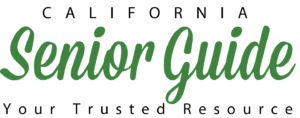
Retirement is Not “Golden” For All Older Adults
Over 23 million Americans aged 60+ are economically insecure—living at or below 250% of the federal poverty level (FPL) ($29,425 per year for a single person). These older adults struggle with rising housing and health care bills, inadequate nutrition, lack of access to transportation, diminished savings, and job loss. For older adults who are above the poverty level, one major adverse life event can change today’s realities into tomorrow’s troubles.
Poverty Measures
- Almost 75% of single Social Security recipients aged 65+ depend on Social Security for all or most of their monthly income. (Social Security Administration)
Income & Employment
- The average older adult receiving Supplemental Security Income gets just $425 each month. (Social Security Administration)
- Older women typically receive about $4,000 less annually in Social Security than older men due to lower lifetime earnings, time taken off for caregiving, occupational segregation into lower wage work, and other issues. Older women of color fare even worse. (Wider Opportunities for Women)
Debt & Savings
- One-third of senior households has no money left over each month or is in debt after meeting essential expenses. (Institute on Assets and Social Policy)
Health & Nutrition
- Over 27% of older adults living in poverty were at risk for hunger in 2011. (National Foundation to End Senior Hunger)
- Only one-third of eligible older adults (age 60+) are enrolled in the Supplemental Nutrition Assistance Program (formerly Food Stamps).
Housing
- As of December 2011, 16% of older homeowners owed more on their house than it was worth. (AARP)
- A majority of older adults have unsustainable housing costs, with 59% of older renters and 33% of homeowners with mortgages spending more than 30% of their income on housing costs. (AARP)
NCOA offers several programs and products that provide hope for economically insecure older adults.
Economic Security Initiative offers innovative programs in 20 communities to help economically disadvantaged older adults cut through red tape and create a plan to build their own economic stability and security.
EconomicCheckUp® the nation’s most comprehensive, free online service to help older adults adults find work, cut spending, reduce debt, and use their home equity.
Reverse Mortgage Counseling is one of eight national counseling groups approved by the U.S. Department of Housing & Urban Development to provide one-on-one counseling.
Center for Benefits Access helps community-based organizations find and enroll seniors and younger adults with disabilities with limited means into benefits programs for which they are eligible, so they can remain healthy, secure, and independent.
Senior Community Service Employment Program (SCSEP) NCOA manages 27 Senior Community Service Employment Program (SCSEP) offices under a grant from the U.S. Department of Labor. SCSEP helps adults aged 55+ return to or remain active in the workforce by providing job training, job search services, and on-the-job experience.
Source: NCOA





